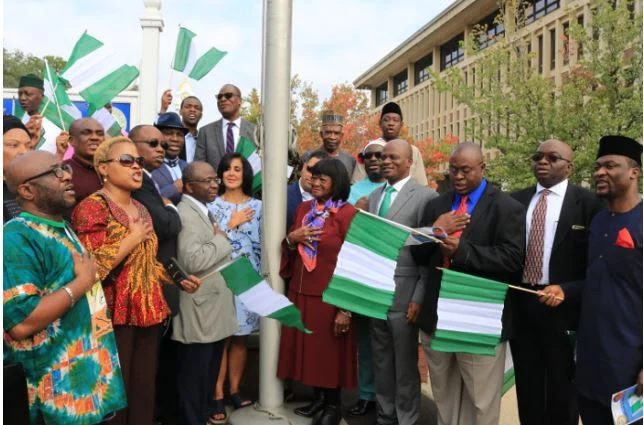The Nigerians in the United Kingdom (NIUK) Community has come under scrutiny following the release of its election results, which contained conflicting figures and were announced at an unusual hour, raising concerns about the credibility of the process.
NIUK, established in 2022, serves as a support network for Nigerians relocating to the UK, aiming to facilitate their integration.
According to its constitution, the community elects an executive body every two years, with both financial and non-financial members eligible to vote.
In the election results released on Sunday, 21 candidates contested for various positions. The NIUK Electoral Committee reported that 1,421 members registered to vote, yet only 414 participated—an unusually low turnout.
However, discrepancies arose when the committee announced that those 414 voters had cast a total of 507 votes, an anomaly that sparked widespread criticism.
Many community members and observers questioned the integrity of the election process, with some also raising concerns over the timing of the results’ release.
Given the time difference between the UK (GMT) and Nigeria (GMT+1), the results were made public at 12:24 a.m. UK time (1:24 a.m. in Nigeria), a time when most members would likely be asleep.
In response to the backlash, the NIUK Electoral Committee blamed the inconsistency on a typographical error and the use of two different voting platforms—Google Forms and Election Runner.
The committee explained that while Election Runner required voters to rank all 21 candidates, Google Forms allowed participants to select between one and seven candidates, leading to discrepancies in vote counting.
The clarification, however, came 11 hours after the initial announcement, further fueling doubts about the election’s transparency.
Reactions from Nigerians both in the UK and Nigeria have been largely critical. Some accused the committee of disenfranchising a significant portion of registered voters, while others called for a more transparent and reliable voting system in future elections.
NIUK has been vocal in Nigeria’s socio-political discourse, particularly in advocating for diaspora voting rights.
In 2024, the community pushed for Nigerian citizens abroad to participate in national elections—a proposal that has since passed the second reading in the House of Representatives.
Despite its influence, the recent controversy has cast doubt on NIUK’s electoral process, with many calling for urgent reforms to restore trust in its democratic practices.
Culled: FIJ



